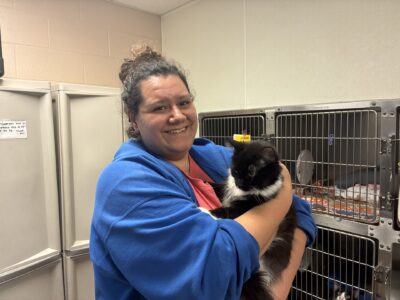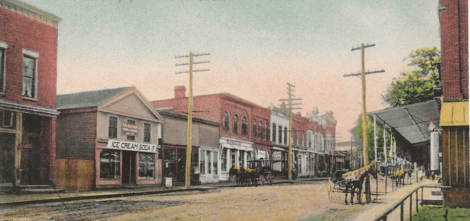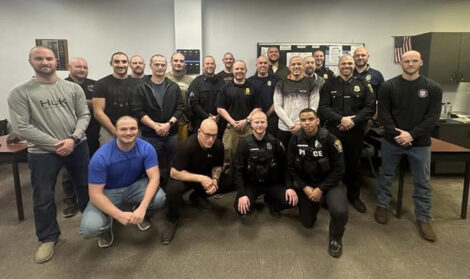Concerns Raised Over Proposed Dairy Farm Limits

Assemblyman Joe Sempolinski, R-Canisteo, speaks on the Assembly floor earlier this legislative session. Sempolinski is concerned that legislation introduced in March aiming to ban new permits for farms with more than 700 dairy cows could hurt the state’s dairy industries.
Legislation introduced in March in the state Senate and Assembly is creating concern for some state dairy farmers.
Assemblywoman Linda Rosenthal, D-New York City, and Sen. Jabari Brisport, D-Brooklyn, introduced legislation (A.6928/S.6530) in March. The bill, which has yet to move out of either chamber’s committee for a full floor vote, would amend the state Environmental Conservation Law to prohibit the state DEC from authorizing any permits to new or expanding large concentrated animal feeding operations (CAFO).
In New York, CAFOs are defined as farms housing house 700 or more dairy cows, 1,000 or more veal calves, or 2,500 or more pigs weighing at least 55 pounds. The proposed bill would bar the Department of Environmental Conservation from issuing new Concentrated Animal Feeding Operation (CAFEO) permits for large-scale dairies. A CAFO permit is required for any dairy with more than 300 cows, but the large-scale permit is required for any dairy with more than 700 cows.
Assemblyman Joe Sempolinski, R-Canisteo, is already expressing his concerns over the proposal, saying last week that the bill could hurt family farms despite Rosenthal and Brisport saying the bill aims to protect small farms.
“This bill was drafted by two Legislators from New York City who know nothing about dairy farming but are presuming to tell New York’s dairy farmers how to run their farms,” Assemblyman Sempolinski said. “The majority of New York’s farms, more than 94 percent, are family owned. This bill has the potential to devastate family farms across New York.”
Jay Matteson, Jefferson County agricultural coordinator, told television station WWNY earlier this week that he agrees with Sempolinski’s concerns. While 700 cows may seem like a lot, Matteson said a number of family-run dairy farms in the North Country already exceed 700 cows. Those farms have received permits and wouldn’t be affected, but new farms that want to get into the business could be dissuaded by the bill, Matteson said.
Brisport and Rosenthal said in their legislative justification that New York state had a 21% increase in the number of
dairy cows living on factory farms housing more than 500 animals from 2017 to 2021. CAFOs have numerous detrimental impacts to the environment, they say, by creating billions of pounds of manure each year, runoff
that pollutes local waterways and causes harmful algal blooms. They also cite methane emissions from large farms.
Economically, the lawmakers say Concentrated Animal Feeding Operations pose an economic threat to smaller-sized farms and rural economies because they are run by large corporations that squeeze out local competition to maximize profits. They cite a Food & Water Watch report showing that over the last five years, the increase in dairy factory farms with over 500 animals in New York state correlates to the closure of 43.5% of small-scale family dairy farms.
“The growing number of CAFOs presents a unique threat to New York’s small farms and rural economies,” Rosenthal and Brisport said. “New York state must take action to prevent the proliferation of CAFOs that damage our communities and our environment. This legislation would prohibit the Department of Environmental Conservation from issuing any new permits to establish a new or expand an existing farm to become a CAFO.”
According to the New York Farm Bureau, dairy is the single largest sector of New York’s agricultural economy, contributing $3.9 billion every year. New York is the fifth-largest dairy producing state in the nation. Sempolinski said prohibiting large-scale CAFO’s end up limiting the supply of milk from New York dairy producers to major dairy manufacturers, including the Great Lakes Cheese Plant in Franklinville.
“With all due respect to my colleagues from New York City, this bill is dangerously misguided. It’s a breathtaking example of legislative overreach,” Sempolinski said. “It takes 60,000 cows per day to supply milk to the Great Lakes Cheese Plant in Franklinville. Family run dairy farms in Allegany, Cattaraugus and Steuben counties are supplying that milk. They clearly have never visited any of our large, family owned farms upstate.”





